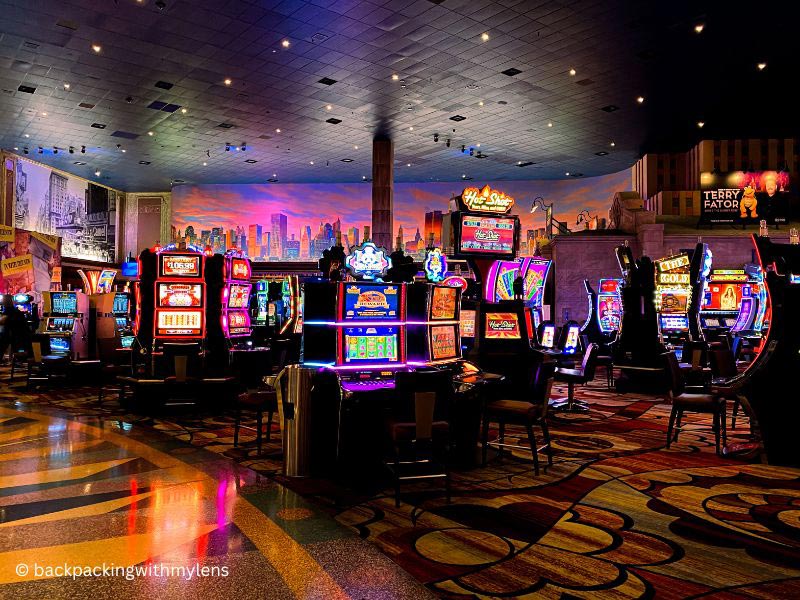
Casino entertainment have long been a significant aspect of human culture, providing not just entertainment but a captivating reflection of our hopes, dreams, and anxieties. From the rotating wheels of a slot machine to the tactical play of poker, these games represent a variety of human emotions and events. At their core, casino games are not just a chance to make profits; they are a reflection of life itself, where risk and reward converge and luck can change in an eye blink.
As players gather around tables or sit in front of vibrantly illuminated machines, they engage in a ritual that transcends mere gambling. These games echo our natural desires for connection, excitement, and the pursuit of luck. They also disclose deeper truths about human behavior, such as our relationship with chance and the thrill of risk. In exploring casino games, we reveal not only the nuances of play but also the intricate pattern of the human journey, showcasing our woven narratives of aspiration and reality.
The Psychology of Gambling
Wagering is deeply rooted in the psyche of individuals, tapping into various feelings and wants. The thrill of taking risks is a fundamental aspect that draws players in, be it the thrill of spinning a roulette wheel or the anticipation of drawing a winning hand in a poker game. This rush of adrenaline is often compared to other forms of thrill, as the unpredictability of outcomes triggers a unique psychological response. Players often find themselves entranced by the possibility of striking it rich, leading to an almost magnetic draw toward gambling games.
Another, an essential component of the psychology behind gambling is the concept of hope and aspiration. Participants often nourish fantasies of financial freedom and the luxurious lifestyle that can follow winning. This hope fuels their ongoing participation in gambling, as it provides a sense of purpose and the belief that a life-changing win could be just one wager away. The narrative of beating the odds and achieving success resonates with many, strengthening their commitment to play and involve themselves with these games.
Lastly, social aspects play a crucial role in gambling psychology. Casino environments are designed to foster social interaction, where gamblers gather to share the experience of wins and losses. This shared aspect not only amplifies enjoyment but also influences behavior, as individuals often imitate the actions of others around them. The collective approval found in shared excitement can enhance the emotional experience, making casino games a mirror of not just personal desires but also collective engagement within the gambling community.
## The Dual Nature of Risk and Reward
Gambling activities embody the fragile balance between risk and gain that resonates profoundly with the human experience. The excitement of placing a bet is often accompanied by a jolt of energy, as players are confronted with the chance of striking it rich, yet conscious of the risk to suffer losses. This twofold experience reflects a essential aspect of life: the choices we make often come with intrinsic risks, and the quest for benefit can compel us to embrace risks we might not normally consider. In this way, gambling activities echo real-world choices, enticing gamblers to risk not just their money, but also their aspirations.
The allure of big prizes and payouts fuels a feeling of positivity, inspiring gamblers to dream of a better future that could manifest from a lucky spin of the roulette or dealing of a hand. This hope can compel individuals to engage in more daring actions, urging them to extend their limits in search of financial gain. However, just as in life, the outcomes of these risks can lead to both victory and despair. The narratives of both jackpot winners and those who have lost everything at the tables demonstrate the random nature of luck and its consequential effect on our lives.
Ultimately, the interaction of engaging with gambling activities serves as a potent reminder of the human condition. Every game played is imbued with the tension of risk, as gamblers weigh the gains against the dangers. This dynamic not only highlights the excitement that comes with gambling but also unveils the weaknesses that come with the longing for more. As we explore the challenges of choice and results in both the casino and in life, we find that the search for benefit shapes our identities and lives in significant manners.
Culture and Solitude in Casino Environment
Casino environment is a unique mix of communal interaction and individual endeavor, reflecting the dualities of human experience. Players often gather around tables, experiencing in the thrill of the game, celebrating wins, and sympathizing over losses. This social aspect is vital, as it establishes a sense of community and camaraderie among varied groups of individuals. Regular visitors to gaming establishments may build friendships and establish routines, turning the gambling venue into a second home where they experience connected to a greater community of players.
However, the attraction of gambling activities can also result to loneliness. As players become engrossed in the excitement of playing, they may isolate from personal relationships or neglect to interact with the environment outside the casino. For some, the pursuit of a jackpot can distract from genuine relationships, leading to loneliness. The experience of being among people yet feeling solitary is not rare, as the attention shifts from collective fun to the individual concerns of each individual’s journey.
This interaction of society and isolation creates a vivid tapestry that defines gaming atmosphere. It highlights the intricacy of social interactions, where happiness and sorrow coexist. FB88 Casinos serve as both a sanctuary for social interaction and a platform for individual challenges, illustrating how deeply connected our desire for connection and the individual quest for wealth can be. In navigating this landscape, gamblers confront their own stories—seeking both the rush of the wager and the fellowship of fellow players, eventually mirroring the wider spectrum of individual experience.
